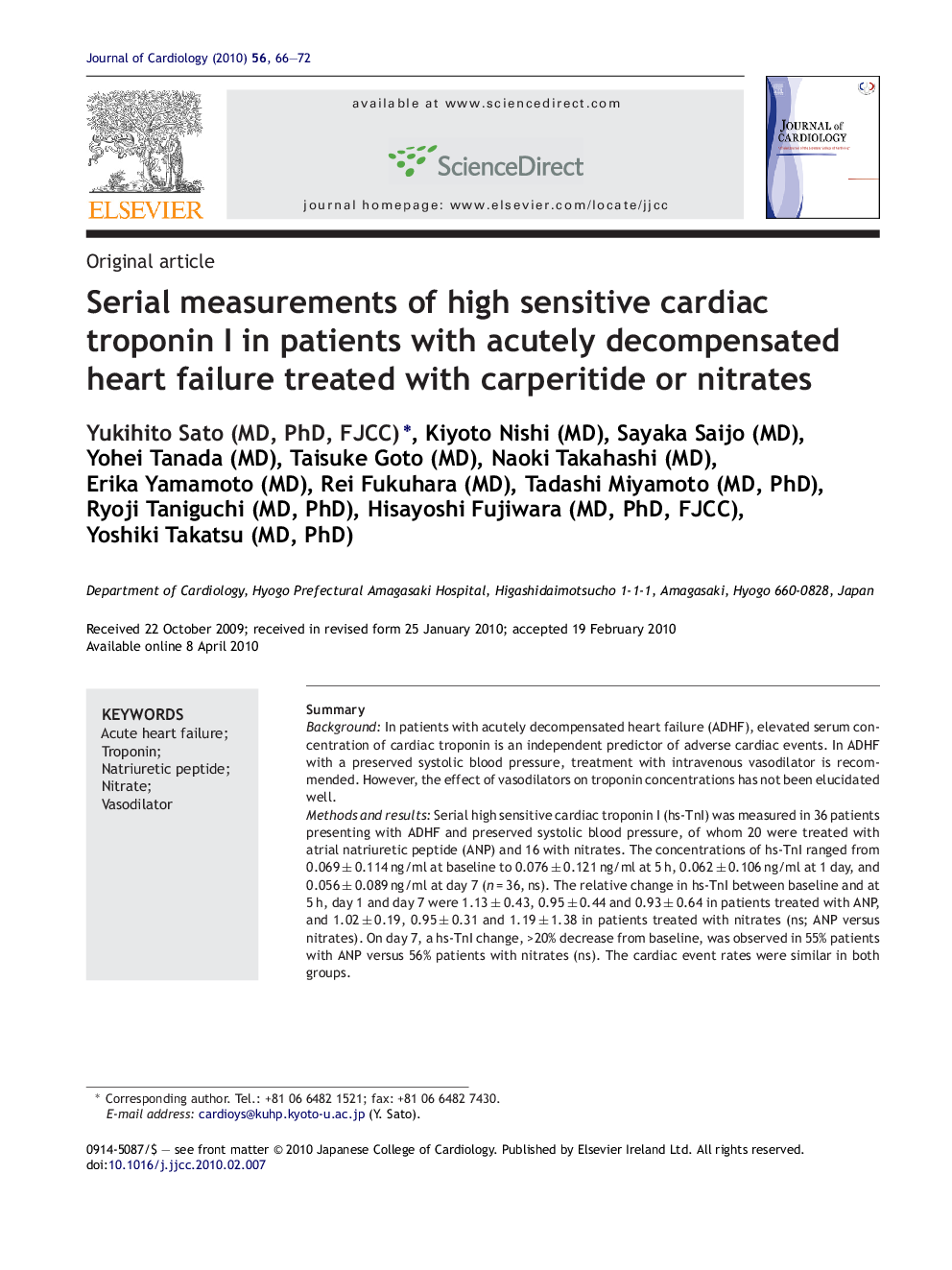| Article ID | Journal | Published Year | Pages | File Type |
|---|---|---|---|---|
| 2963617 | Journal of Cardiology | 2010 | 7 Pages |
SummaryBackgroundIn patients with acutely decompensated heart failure (ADHF), elevated serum concentration of cardiac troponin is an independent predictor of adverse cardiac events. In ADHF with a preserved systolic blood pressure, treatment with intravenous vasodilator is recommended. However, the effect of vasodilators on troponin concentrations has not been elucidated well.Methods and resultsSerial high sensitive cardiac troponin I (hs-TnI) was measured in 36 patients presenting with ADHF and preserved systolic blood pressure, of whom 20 were treated with atrial natriuretic peptide (ANP) and 16 with nitrates. The concentrations of hs-TnI ranged from 0.069 ± 0.114 ng/ml at baseline to 0.076 ± 0.121 ng/ml at 5 h, 0.062 ± 0.106 ng/ml at 1 day, and 0.056 ± 0.089 ng/ml at day 7 (n = 36, ns). The relative change in hs-TnI between baseline and at 5 h, day 1 and day 7 were 1.13 ± 0.43, 0.95 ± 0.44 and 0.93 ± 0.64 in patients treated with ANP, and 1.02 ± 0.19, 0.95 ± 0.31 and 1.19 ± 1.38 in patients treated with nitrates (ns; ANP versus nitrates). On day 7, a hs-TnI change, >20% decrease from baseline, was observed in 55% patients with ANP versus 56% patients with nitrates (ns). The cardiac event rates were similar in both groups.ConclusionsIn ADHF patients with preserved systolic blood pressure, the administration of intravenous vasodilators did not decrease hs-TnI over the first 7 days. Treatments with ANP and nitrates were associated with similar short-term decreases in hs-TnI and long-term adverse cardiac events.
